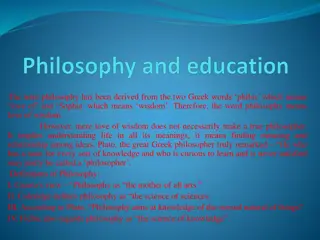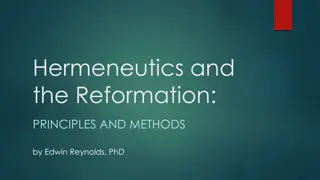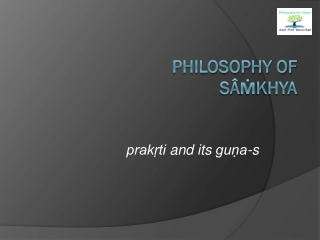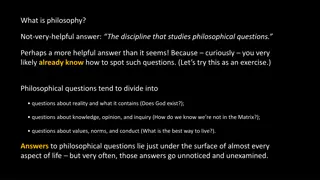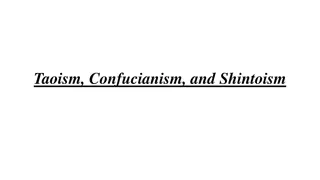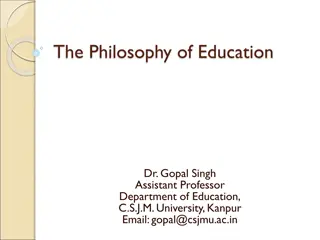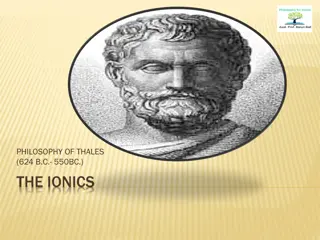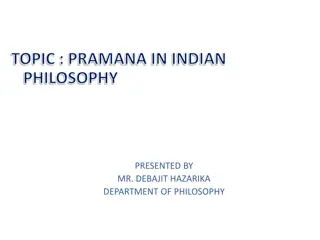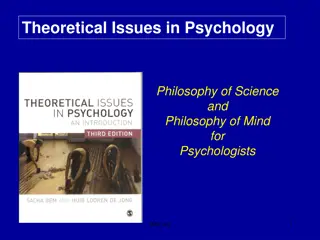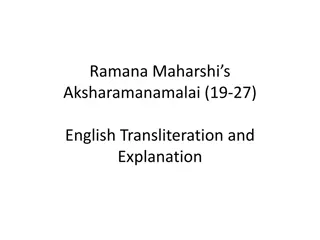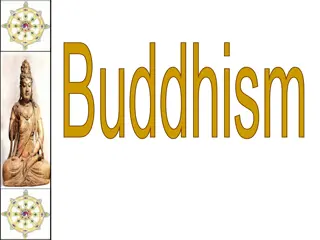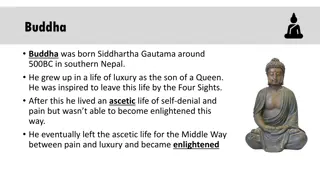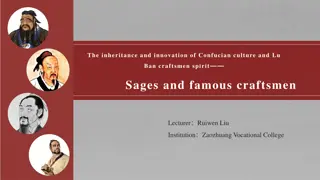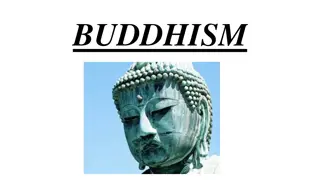Overview of Jainism: Philosophy, Teachings, and Principles
Jainism, derived from "Jina," meaning conqueror, is a faith based on conquering passions and desires. It has 24 Tirthankaras, with Mahavira being a prominent figure who gave Jainism a new direction. Jain canonical literature, teachings on knowledge types, and beliefs in perception, inference, and authority play significant roles in Jain philosophy.
Download Presentation

Please find below an Image/Link to download the presentation.
The content on the website is provided AS IS for your information and personal use only. It may not be sold, licensed, or shared on other websites without obtaining consent from the author. Download presentation by click this link. If you encounter any issues during the download, it is possible that the publisher has removed the file from their server.
E N D
Presentation Transcript
The word Jainism is derived from Jina which means conqueror. One who has conquered his passions and desires. The Jaina believe in 24 Tirthankaras or founder of the Faith. The first was Rsabhadeva and the last, Mahavira, the great spritual hero, whose name was Vardhamana.
But Mahavira gave a new orientation to that faith and for all practical purposes, modern Jainism may be rightly regarded as a result of his teachings. He flourished in the sixth century B. C. and was a contemporary of the Buddha.
MAHAVIRA BUDDHA
the 23rdTirthankara, was Parshvanatha. He is also a historical personage who lived in the eighth or ninth century B. C.
84 canonical literature were there. which was composed in 454 B. C. Umaswati: Tattwarthadhigomsutra Harivadra: shradarshansmuchay Hemchandra: yogshastra
Shetamwra Digamwar
Avadhi Immediate Manahparyaya Kevala Knowledge Mati Mediate Shruta
Perceptual knowledge which is admitted to be relativity so by Jainism included it as mediate knowledge. Mati includes both perceptual and inferential knowledge. Shruta means knowledge authority. derived from
Perception Inference Authority
Avadhi Manahparyaya Kevala Clairvoyance Telepathy Omniscience
Manahparyaya is direct knowledge of the thoughts of others. This too is limited by spatial and temporal conditions. In both Avadhi and Manahparyaya, the soul has direct knowledge unaided by the sense or the mind. Hence Avadhi and Manahparyaya both are called immediate, though limited.
Kevala-jnana is unlimited and absolute knowledge. It can be acquired only by the liberated souls. It is not limited by time, space or object.
Kevala Manahparyaya Avadhi Mati Shruta
Viparyaya doubt Wrong knowledge through indifference. Mistake Samshaya Anadhyavasaya




